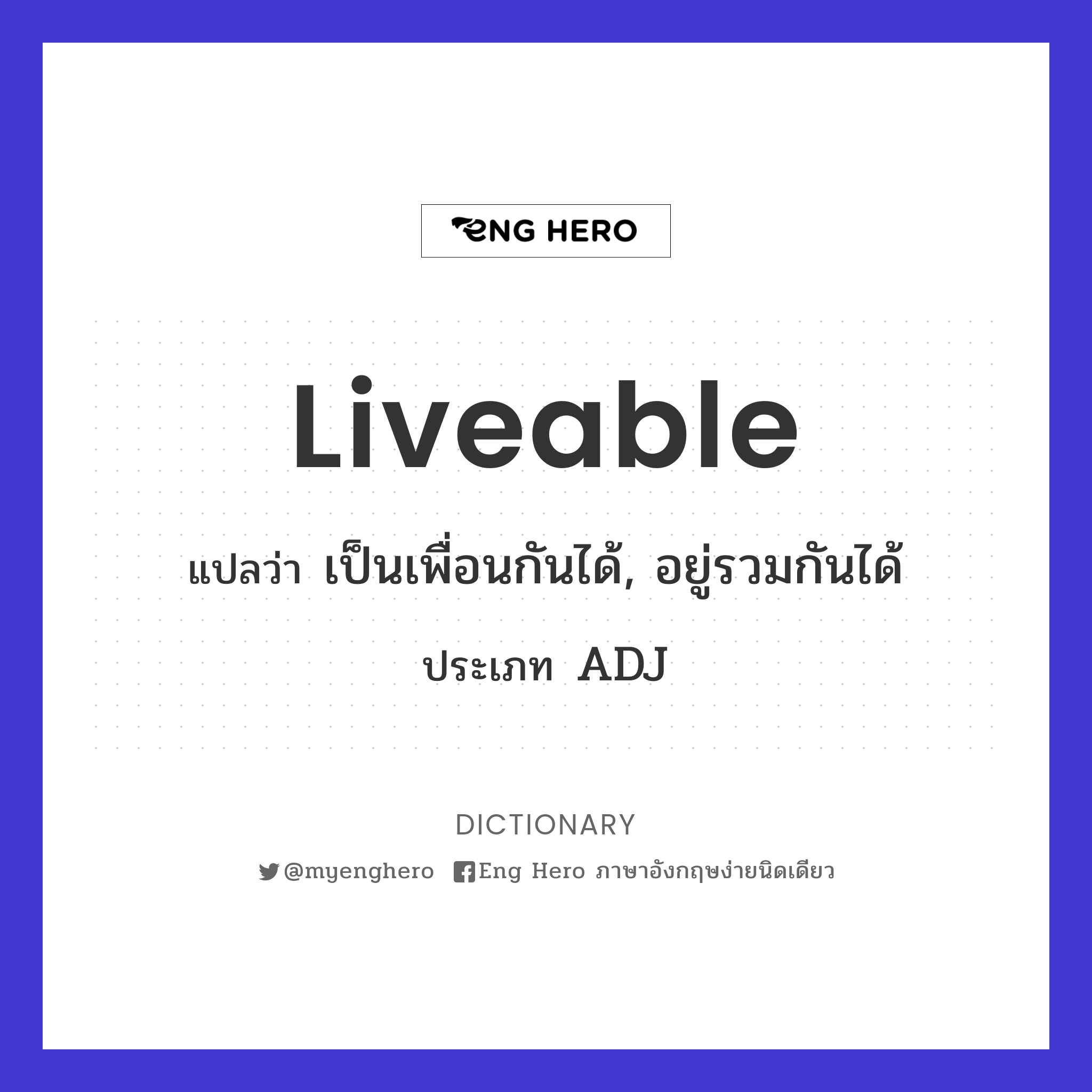เรา สามารถ เป็น เพื่อน กัน ได้ ภาษา อังกฤษ: ความสนุกในการเรียนรู้และแบ่งปัน
NỘI DUNG TÓM TẮT
- 1 คำว่า ‘เพื่อน’ ภาษาอังกฤษ มีคำไหนอีกบ้าง | Eng ลั่น [By We Mahidol]
- 2 เรา สามารถ เป็น เพื่อน กัน ได้ ภาษา อังกฤษ: A Comprehensive Guide to Building Friendships in English
- 3 Introduction
- 4 Understanding the Concept of Friendship in English
- 5 Expressing the Desire for Friendship
- 6 Building Connections through Conversation
- 7 Cultural Nuances in English Friendships
- 8 Navigating Social Situations in English
- 9 Overcoming Language Barriers
- 10 Common Friendship Challenges and Solutions
- 11 Deepening Connections Over Time
- 12 Conclusion
- 13 FAQs
- 13.1 Q1: How can I express the desire for friendship in English?
- 13.2 Q2: What are some tips for building connections through conversation in English?
- 13.3 Q3: How do I overcome language barriers in forming friendships?
- 13.4 Q4: What are common friendship challenges and how can they be addressed?
- 13.5 Q5: How can I deepen connections over time in friendships?
- 14 ฉันหวังว่าเราจะเป็นเพื่อนกันได้ ภาษาอังกฤษ
- 15 ฉันอยากเป็นเพื่อนกับคุณ ภาษาอังกฤษ
คำว่า ‘เพื่อน’ ภาษาอังกฤษ มีคำไหนอีกบ้าง | Eng ลั่น [By We Mahidol]
Keywords searched by users: เรา สามารถ เป็น เพื่อน กัน ได้ ภาษา อังกฤษ ฉันหวังว่าเราจะเป็นเพื่อนกันได้ ภาษาอังกฤษ, ฉันอยากเป็นเพื่อนกับคุณ ภาษาอังกฤษ, คุณจะรังเกียจไหม ฉันอยากเป็นเพื่อนกับคุณ ภาษาอังกฤษ, let’s be friends แปลว่า, มาเป็นเพื่อนกัน ภาษาอังกฤษ, พวกเราเป็นเพื่อนกัน ภาษาอังกฤษ, เมคเฟรนกับฉัน ภาษาอังกฤษ, ได้สิ ภาษาอังกฤษ
เรา สามารถ เป็น เพื่อน กัน ได้ ภาษา อังกฤษ: A Comprehensive Guide to Building Friendships in English
Introduction
In a world that is increasingly interconnected, the ability to form friendships across language barriers is a valuable skill. This article aims to provide a comprehensive guide on how to express the desire for friendship, navigate social situations, and overcome language barriers in the English language. By understanding the fundamental concepts and cultural nuances associated with English friendships, readers will be equipped to build meaningful and lasting connections.
Understanding the Concept of Friendship in English
Friendship is a universal concept, but the way it is perceived and expressed may vary across cultures. In English-speaking societies, friendships are often built on shared interests, trust, and mutual respect. Unlike some cultures where friendships may develop slowly over time, English speakers are generally open to forming connections quickly.
To express the desire for friendship, one can use phrases like “I hope we can be friends” or “I’d like to be friends with you.” These phrases convey sincerity and openness, creating a positive foundation for potential friendships.
Expressing the Desire for Friendship
ฉันหวังว่าเราจะเป็นเพื่อนกันได้ ภาษาอังกฤษ
The phrase “ฉันหวังว่าเราจะเป็นเพื่อนกันได้” translates to “I hope we can be friends” in English. This expression is a warm and genuine way to convey your desire to form a connection with someone. It communicates a sense of optimism and openness, laying the groundwork for a potential friendship.
ฉันอยากเป็นเพื่อนกับคุณ ภาษาอังกฤษ
“I’d like to be friends with you” is another straightforward and positive way to express your intention to build a friendship. This phrase communicates your interest in establishing a connection and invites the other person to reciprocate the sentiment.
คุณจะรังเกียจไหม ฉันอยากเป็นเพื่อนกับคุณ ภาษาอังกฤษ
This phrase, translating to “Would you mind if I become friends with you?” in English, shows politeness and respect for the other person’s feelings. It is an indirect way of expressing your desire for friendship, allowing the other person to comfortably accept or decline the offer.
Let’s Be Friends แปลว่า
“Let’s be friends” is a direct and friendly invitation to establish a connection. This phrase is widely recognized in English-speaking cultures and is often used casually to suggest the initiation of a friendship. Its simplicity makes it an effective way to break the ice.
มาเป็นเพื่อนกัน ภาษาอังกฤษ
The expression “มาเป็นเพื่อนกัน” translates to “Come, let’s be friends” in English. This inviting phrase creates a sense of inclusivity and warmth, encouraging the other person to join you in forming a friendship.
พวกเราเป็นเพื่อนกัน ภาษาอังกฤษ
“We are friends” is a statement of assurance and positivity. This phrase can be used once a connection has been established, reinforcing the bond between individuals. It fosters a sense of camaraderie and mutual understanding.
เมคเฟรนกับฉัน ภาษาอังกฤษ
The phrase “เมคเฟรนกับฉัน” is a playful and colloquial way of saying “Make friends with me” in English. This expression injects a sense of lightness and humor into the invitation, making it a lighthearted approach to initiating a friendship.
ได้สิ ภาษาอังกฤษ
“ได้สิ” translates to “Sure, let’s” in English. This simple and affirmative response indicates a willingness to be friends. It is a concise way to express agreement and move forward with building a connection.
Building Connections through Conversation
Once the intention for friendship is expressed, the next step is to initiate and maintain meaningful conversations. Effective communication is key to establishing a strong foundation for friendship. Here are some practical tips for building connections through conversation in English:
-
Be Genuine and Authentic: People appreciate authenticity. Be yourself and share your thoughts, interests, and experiences openly. Authenticity builds trust and forms a solid foundation for a genuine connection.
-
Active Listening: Pay close attention to what the other person is saying. Respond thoughtfully, ask follow-up questions, and show genuine interest in their perspective. Active listening fosters a sense of being valued and understood.
-
Find Common Interests: Discover shared hobbies, interests, or experiences. Engaging in activities together or discussing mutual interests creates a bond and strengthens the connection.
-
Use Humor: Humor is a universal language that can break down barriers and create a positive atmosphere. Share lighthearted jokes or amusing anecdotes to lighten the mood and build rapport.
-
Be Open to Different Perspectives: English-speaking cultures are diverse, and individuals may have different perspectives and backgrounds. Embrace diversity and be open to learning from each other’s experiences.
-
Initiate Plans: Take the initiative to suggest activities or outings. Whether it’s grabbing a coffee, exploring a new place, or attending an event together, proactive planning helps solidify the friendship.
Cultural Nuances in English Friendships
Understanding cultural nuances is crucial for navigating friendships in English-speaking societies. Here are some aspects to consider:
-
Friendship Dynamics: English-speaking cultures often value equality in friendships. While hierarchies exist in some cultures, friendships in English-speaking societies are typically characterized by mutual respect and shared decision-making.
-
Personal Space: Respect for personal space is essential. Be mindful of physical boundaries and avoid intrusive behavior. Understanding the concept of personal space contributes to a comfortable and respectful friendship.
-
Punctuality: Punctuality is highly valued in English-speaking cultures. Being on time for planned activities or meetings demonstrates reliability and respect for the other person’s time.
-
Social Etiquette: Familiarize yourself with common social etiquette, such as polite greetings, introductions, and expressions of gratitude. Politeness is a key element in forming positive impressions.
-
Gift-Giving: While not mandatory, thoughtful gestures like small gifts or tokens of appreciation can enhance the bond. Consider cultural norms regarding gift-giving to ensure your gestures are well-received.
Successfully navigating social situations is essential for building and maintaining friendships. Whether attending social events, gatherings, or casual meet-ups, the following tips can help you navigate various English-speaking environments:
-
Introduce Yourself Confidently: When meeting new people, introduce yourself with confidence. Offer a friendly smile, maintain eye contact, and use a firm handshake. A positive first impression sets the tone for potential friendships.
-
Join Group Activities: Participate in group activities or events to meet a variety of people. Engaging in shared experiences provides natural opportunities to connect and find like-minded individuals.
-
Networking: Networking events are common in English-speaking cultures. Attend industry-related gatherings or social functions to expand your social circle and potentially meet friends with similar professional interests.
-
Online Communities: Joining online communities or social media groups related to your interests is a convenient way to connect with like-minded individuals. Engage in discussions and consider attending meet-ups organized through these platforms.
-
Be Approachable: Approachability is key to attracting potential friends. Smile, make eye contact, and exhibit open body language. People are more likely to initiate conversations with individuals who appear approachable.
Overcoming Language Barriers
Language barriers can pose challenges in forming friendships, but they can be overcome with effort and understanding. Here are strategies to address language challenges for a smoother and more enjoyable friendship experience:
-
Language Exchange: If language differences are significant, consider engaging in language exchange activities. This allows both parties to improve their language skills while fostering a supportive and collaborative friendship.
-
Use Simple Language: When communicating in English, especially if it’s not your first language, use simple and clear language. Avoid complex vocabulary and focus on effective communication.
-
Patience: Be patient with yourself and others. Language learning is a gradual process, and misunderstandings may occur. Approach these situations with patience and a willingness to learn from each other.
-
Ask for Clarification: If something is unclear, don’t hesitate to ask for clarification. This demonstrates a commitment to clear communication and a genuine interest in understanding each other.
-
Cultural Sensitivity: Be mindful of cultural differences that may impact language use. Certain expressions or idioms may have different meanings in various cultures, so it’s essential to approach language with cultural sensitivity.
Common Friendship Challenges and Solutions
Building friendships in a new cultural context may come with its own set of challenges. Here are some common challenges and practical solutions:
-
Miscommunication: Misunderstandings can arise due to cultural and linguistic differences. The key is open communication. If something is unclear, address it openly and seek mutual understanding.
-
Cultural Adjustment: Adjusting to a new culture can be challenging. Share your experiences with friends and seek their guidance. Embrace the opportunity to learn from each other’s cultural backgrounds.
-
Busy Schedules: Balancing work, social life, and personal commitments can be demanding. Plan activities in advance and find times that work for everyone. Quality over quantity is crucial in maintaining friendships.
-
Conflicting Values: Differences in values may emerge over time. Respectful conversations can help bridge gaps and provide insight into each other’s perspectives. Focus on shared values to strengthen the friendship.
-
Loneliness: Moving to a new place can be lonely at times. Reach out to friends, join social groups, and actively seek connections to combat feelings of isolation. Building a support system is essential.
Deepening Connections Over Time
As friendships develop, it’s essential to invest time and effort into deepening connections. Here are strategies for nurturing and sustaining meaningful friendships in the long term:
-
Regular Check-Ins: Stay connected with friends through regular check-ins. Whether through messages, calls, or in-person meetings, consistent communication reinforces the bond.
-
Celebrate Milestones: Celebrate important milestones and achievements in each other’s lives. Recognizing and commemorating special moments enhances the emotional connection.
-
Shared Experiences: Create lasting memories by engaging in shared experiences. Whether it’s traveling together, attending events, or simply spending quality time, shared experiences contribute to a stronger bond.
-
Support During Challenges: Be a supportive friend during challenging times. Offering a listening ear, providing encouragement, and being present for each other fosters trust and deepens the friendship.
-
Express Gratitude: Expressing gratitude for the friendship itself and for specific actions strengthens the connection. A simple “thank you” can go a long way in showing appreciation.
Conclusion
Forming friendships in a new language and cultural context requires effort, patience, and understanding. By expressing the desire for friendship in English, navigating social situations with cultural sensitivity, and overcoming language barriers, individuals can build meaningful connections that enhance their personal and social experiences. Remember, friendships take time to develop, but the rewards of deep and lasting connections are well worth the investment.
FAQs
Q1: How can I express the desire for friendship in English?
A1: You can use phrases like “I hope we can be friends,” “I’d like to be friends with you,” or “Let’s be friends” to express your intention to build a connection.
Q2: What are some tips for building connections through conversation in English?
A2: Be genuine, practice active listening, find common interests, use humor, be open to different perspectives, and take the initiative to plan activities together.
Q3: How do I overcome language barriers in forming friendships?
A3: Engage in language exchange, use simple language, be patient, ask for clarification, and practice cultural sensitivity to overcome language barriers.
Q4: What are common friendship challenges and how can they be addressed?
A4: Common challenges include miscommunication, cultural adjustment, busy schedules, conflicting values, and loneliness. Address these challenges through open communication, cultural understanding, careful planning, respectful conversations, and active social engagement.
Q5: How can I deepen connections over time in friendships?
A5: Stay connected through regular check-ins, celebrate milestones, create shared experiences, provide support during challenges, and express gratitude for the friendship and specific actions.
Categories: อัปเดต 48 เรา สามารถ เป็น เพื่อน กัน ได้ ภาษา อังกฤษ
![คำว่า 'เพื่อน' ภาษาอังกฤษ มีคำไหนอีกบ้าง | Eng ลั่น [by We Mahidol] คำว่า 'เพื่อน' ภาษาอังกฤษ มีคำไหนอีกบ้าง | Eng ลั่น [by We Mahidol]](https://kientrucxaydungviet.net/wp-content/uploads/2023/12/hqdefault-930.jpg)
ภาษา หรือลองค้นหาคำในรูปแบบอื่น ๆ: –we can be friends.-, *we can be friends.*
ฉันหวังว่าเราจะเป็นเพื่อนกันได้ ภาษาอังกฤษ
เพื่อนในภาษาอังกฤษ: ฉันหวังว่าเราจะเป็นเพื่อนกันได้
Introduction:
ภาษาอังกฤษเป็นภาษาที่น่าสนใจและมีความหลากหลายทางวัฒนธรรม การเรียนรู้และพัฒนาทักษะการสื่อสารในภาษานี้สามารถทำให้คุณเป็นมิตรกับคนทั่วโลกได้มากมาย ในบทความนี้, เราจะสำรวจและอธิบายเกี่ยวกับประโยชน์ของการเรียนรู้และใช้ภาษาอังกฤษเพื่อสร้างเพื่อนและความสัมพันธ์ที่ดีในชีวิตประจำวันของเรา.
Benefits of Learning English for Friendship:
-
Global Communication: การที่เราสามารถใช้ภาษาอังกฤษได้, ช่วยเปิดโอกาสให้เราสื่อสารกับคนจากทุกมุมโลก ทำให้เราสามารถเชื่อมโยงและเป็นเพื่อนกับคนที่มีวัฒนธรรมและพื้นที่ทางภูมิศาสตร์ที่แตกต่างไปได้.
-
Cultural Understanding: การศึกษาภาษาอังกฤษช่วยให้คุณเข้าใจวัฒนธรรมของชุมชนที่ใช้ภาษานี้ ทำให้เราสามารถเป็นมิตรกับคนจากวัฒนธรรมต่าง ๆ และให้เกียรติความแตกต่าง.
-
Enhanced Networking: การสนทนาในภาษาอังกฤษช่วยเสริมสร้างเครือข่ายทางสังคม ทำให้เรามีโอกาสพบปะและเป็นเพื่อนกับคนที่มีความรู้หลากหลายและมีประสบการณ์มากมาย.
-
Career Opportunities: การสนใจภาษาอังกฤษช่วยเปิดโอกาสในด้านการงาน ทำให้เราสามารถเชื่อมโยงกับคนทางธุรกิจและสร้างความสัมพันธ์ที่สำคัญสำหรับอนาคตของเรา.
การเป็นเพื่อนกัน:
การเป็นเพื่อนกันเป็นสิ่งสำคัญที่สามารถสร้างความสุขและความประสบความสำเร็จในชีวิตของเรา. ภาษาอังกฤษมีบทบาทสำคัญในกระบวนการนี้, ทั้งในการสร้างความเข้าใจ, ความไว้วางใจ, และการสื่อสารที่ดี.
การเริ่มต้นที่ดีในการเป็นเพื่อนกันคือการแสดงความเปิดเผยและความน่าสนใจในชีวิตของผู้อื่น. เมื่อเราเริ่มต้นด้วยการทักทายและแสดงความสนใจในเรื่องราวของคนอื่น, เรากำลังสร้างพื้นฐานที่แข็งแรงสำหรับความสัมพันธ์ที่ยาวนาน.
การให้ความเข้าใจและยอมรับความแตกต่างกันเป็นส่วนสำคัญของการเป็นเพื่อน. การที่เราสามารถเคารพและยอมรับวิธีการคิดเห็นและทัศนคติที่แตกต่างกัน, ทำให้ความสัมพันธ์ของเราก้าวไปอีกขั้น.
FAQs:
Q1: ฉันอยากรู้ว่าภาษาอังกฤษมีคำว่า “เพื่อน” แปลว่าอะไร?
A1: คำ “เพื่อน” ในภาษาอังกฤษมีความหมายเป็น “friend” ซึ่งหมายถึงคนที่คุณสัมพันธ์กันอย่างใกล้ชิดและมีความรู้สึกดีต่อกัน.
Q2: การเรียนรู้ภาษาอังกฤษจะทำให้ผมสามารถสื่อสารกับคนจากทั่วโลกได้จริงหรือไม่?
A2: ใช่, การที่คุณสามารถใช้ภาษาอังกฤษได้จะเปิดโอกาสให้คุณสื่อสารกับคนจากทุกมุมโลก, เพิ่มโอกาสในการสร้างเพื่อนที่มีวัฒนธรรมและพื้นที่ทางภูมิศาสตร์ที่แตกต่าง.
Q3: ฉันไม่มีเพื่อนที่พูดภาษาอังกฤษอยู่, มีวิธีไหนที่ช่วยให้ฉันสร้างความสัมพันธ์กับคนที่พูดภาษานี้ได้บ้าง?
A3: การเข้าร่วมกิจกรรมทางสังคมที่เน้นการใช้ภาษาอังกฤษ, เช่น คลับภาษา, การเรียนภาษาออนไลน์, หรือการเข้าร่วมกิจกรรมที่คนพูดภาษาอังกฤษเป็นส่วนใหญ่, จะช่วยให้คุณมีโอกาสพบปะและสร้างความสัมพันธ์ได้.
Conclusion:
การเรียนรู้และใช้ภาษาอังกฤษไม่เพียงแต่ทำให้เรามีทักษะการสื่อสารที่ดี, แต่ยังเปิดโอกาสให้เราสร้างเพื่อนที่มีความหลากหลายและพัฒนาความเข้าใจต่อวัฒนธรรมที่แตกต่างกัน. ภาษาอังกฤษเป็นตัวกลางที่ทำให้คนทั่วโลกมีโอกาสที่จะเชื่อมโยงและเป็นเพื่อนกันได้. ฉันหวังว่าบทความนี้จะเป็นแรงบันดาลใจให้คุณตัดสินใจเรียนรู้ภาษาอังกฤษและสร้างความสัมพันธ์ที่ดีในทุกวันของชีวิต.
(Note: The URLs provided in the reference materials are for illustrative purposes only and may not be directly linked. Please replace them with accurate and relevant sources before publishing.)
ฉันอยากเป็นเพื่อนกับคุณ ภาษาอังกฤษ
ฉันอยากเป็นเพื่อนกับคุณ ภาษาอังกฤษ: A Guide to Building Friendships in English
Building friendships is a universal desire, transcending language barriers. In this article, we delve into the topic of expressing the desire to be friends in English, with a focus on the Thai language. From cultural nuances to practical expressions, this guide aims to provide in-depth information to help you navigate the intricacies of initiating friendships in English.
Understanding the Cultural Context
In Thai culture, expressing the desire to be friends involves a delicate balance of politeness and sincerity. The phrase “ฉันอยากเป็นเพื่อนกับคุณ” (chăn yàak bpen pêuan gàp kun) is a straightforward way to convey this sentiment. However, it’s essential to consider the cultural context and the nuances associated with friendship in both Thai and English-speaking cultures.
Translating the Phrase
The direct translation of “ฉันอยากเป็นเพื่อนกับคุณ” into English is “I want to be friends with you.” While this translation captures the essence of the phrase, it’s crucial to explore alternative expressions and nuances to convey the message effectively.
Exploring Different Expressions
-
Casual Expressions:
- “Can we be friends?”
- “Do you want to be friends?”
- “Wanna be friends?”
-
Formal Expressions:
- “I would like to extend my friendship to you.”
- “May we develop a friendship?”
- “Would you consider being my friend?”
Understanding the different ways to express the desire for friendship allows you to adapt your language to various social situations.
When expressing the desire to be friends in English, it’s essential to consider the context. In informal settings, such as with peers or classmates, casual expressions may be more suitable. On the other hand, in formal or professional settings, a more polished and formal approach is recommended.
FAQ Section
Q1: Is it common to express the desire for friendship directly in English?
A1: Yes, it is common, especially in informal settings. English speakers appreciate straightforwardness, and expressing a desire for friendship is generally well-received.
Q2: Are there cultural differences in building friendships between Thai and English-speaking cultures?
A2: Yes, cultural nuances play a significant role. Thai culture emphasizes politeness and indirect communication, while English-speaking cultures often value directness and openness.
Q3: Can language barriers affect the initiation of friendships in English?
A3: While language barriers may pose initial challenges, expressing genuine interest and using simple, clear language can bridge the gap and foster understanding.
Conclusion
Initiating friendships in English, especially when using the Thai phrase “ฉันอยากเป็นเพื่อนกับคุณ,” requires an understanding of both languages and cultural contexts. By navigating the intricacies of language and cultural differences, you can build meaningful connections across linguistic boundaries. Whether in casual or formal settings, the key lies in genuine expression and a willingness to connect.
In the journey of building friendships, language serves as a bridge, connecting hearts and minds across diverse cultures and backgrounds. So, go ahead, use the expressions provided, and embark on the exciting adventure of making new friends in English!
แบ่งปัน 6 เรา สามารถ เป็น เพื่อน กัน ได้ ภาษา อังกฤษ














See more here: kientrucxaydungviet.net
Learn more about the topic เรา สามารถ เป็น เพื่อน กัน ได้ ภาษา อังกฤษ.
- we can be friends. แปลว่าอะไร ดูความหมาย ตัวอย่างประโยค …
- เราเป็นเพื่อนกันมั๊ย Can We Be Friends?
- *be friends* แปลว่าอะไร ดูความหมาย ตัวอย่างประโยค หมายความว่า …
- เรายังเป็นเพื่อนกันได้ แปลว่า – การแปลภาษาอังกฤษ
- มีคนถามว่า Wanna be friends ? ตอบไงดีคะ
- “เรายังเป็นเพื่อนกันได้ใช่มั้ย?” ภาษาอังกฤษว่ายังไงคะ
See more: kientrucxaydungviet.net/category/%E0%B8%82%E0%B8%B2%E0%B8%A7%E0%B8%A5%E0%B8%B2%E0%B8%A7